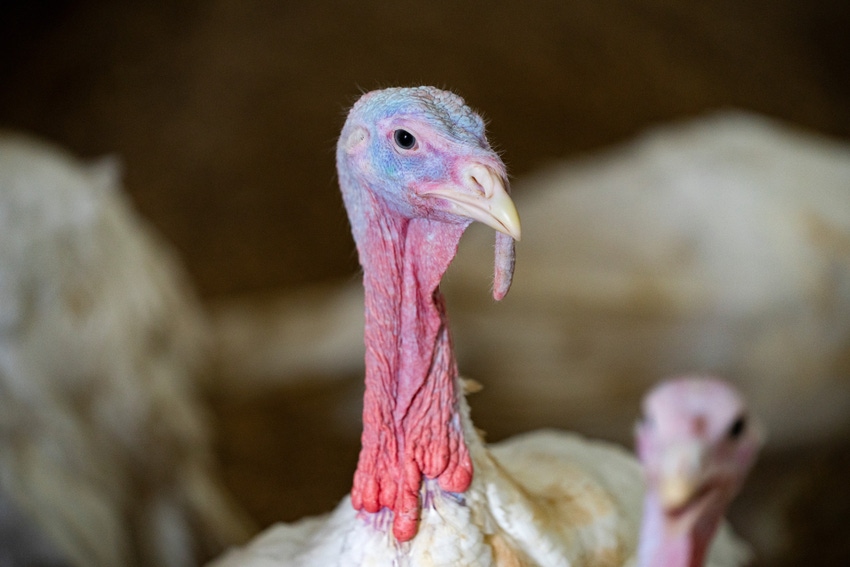Avian flu not expected to impact Thanksgiving turkey prices, stock
Over 800,000 turkeys have been lost in fall outbreak.

After a three to four month hiatus from highly pathogenic avian influenza (HPAI), the U.S. poultry industry is reeling again from another outbreak. However, this outbreak isn’t expected to disrupt holiday turkey prices as much as last year.
The outbreak began in early October, said Greg Archer, Ph.D., Texas A&M AgriLife Extension Service poultry specialist and associate professor in the Texas A&M Department of Poultry Science, Bryan-College Station. More than 1.4 million poultry nationwide, including over 800,000 turkeys, have been lost due to the recent outbreak. Just last week, USDA Animal and Plant Health Inspection Service confirmed a total of 254,700 turkeys were being depopulated in South Dakota and Minnesota due to the virus.
The most recent USDA National Weekly Turkey Report, from Nov. 9, does not show turkey prices reaching last year’s high, with the fresh market price for 8-16 pound and 16-24 pound whole turkeys between $1.26 - $1.74 per pound, and frozen 8-16 pound and 16-24 pound whole turkeys ranging between 86 cents to 96 cents per pound. Further, USDA’s October “Cold Storage” report showed that while total pounds of turkey in freezers were down 6% from September, the levels were 7% higher than year-ago levels.
Still, Archer said consumers might want to plan ahead, just in case the latest avian influenza begins to affect prices.
“Buy your turkey early and store it in your freezer,” Archer said.
HPAI strikes again
Last year, the poultry industry lost almost 60 million birds, including egg laying hens and turkeys between February and late December. Outbreaks waned this year, but Archer said winter bird migrations, including waterfowl, have triggered a new outbreak. Since the fall outbreak onset, over 1 million birds have already been affected.
The disease hits the turkey populations especially hard because of the time it takes to raise birds from hatch to harvest and flocks raised in open-sided houses.
Hatchling turkeys reach harvest weights in 10 to18 weeks, which means they are at an increased risk of potential exposure to the pathogen. It takes 3.5-5.5 months to replace a flock lost to avian influenza.
Producers follow biosecurity and sanitary practices to help prevent diseases from entering their facilities, but avian influenza pathogens that do enter lead to total flock losses, he said.
“Until we figure out a way to fully prevent it from entering the industry, the disease will continue to mutate,” Archer said.
About the Author(s)
You May Also Like





